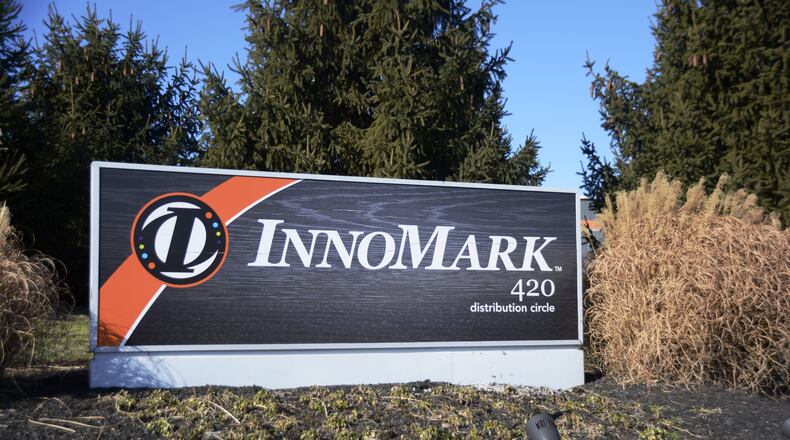InnoMark Communications, 420 Distribution Circle, is the first Fairfield business to benefit from the new program in the city. Fairfield entered into a cooperative agreement Three Rivers Partnership, the company that owns the real estate occupied by InnoMark, and a private lender that will front the money for improvements.
“Improvements financed with PACE financing are repaid through special assessments that are collected as a separate line on a real estate tax bill,” said Fairfield Economic Development Manager Nathaniel Kaelin.
Kaelin said in the event of a default for any reason, local governments are not held liable.
InnoMark Communications is planning a near-$800,000 investment that will replace its HVAC units from the 1980s and the aging roof on its 150,000-square-foot building.
Nathan Goodwin, controller for InnoMark, said the need for the project came about as the company was assessing its roof, and evaluating adding solar energy. The project won’t include solar energy additions, but Goodwin said company officials “will evaluate that as time goes on.”
“One of the reasons that PACE really makes sense for the project is that it spreads the cost of capital and it actually allows us not to record it as a capital expenditure (at this time),” Goodwin said. This allows InnoMark to reserve capital funds for other projects.
A variety of types of projects could be eligible for PACE financing through an ESID, including energy-efficiency improvements with HVAC, lighting, roofs, windows, and insulation. ESIDs can also apply PACE financing to projects that would lead to improved energy efficiency, like solar, wind, and geothermal; water efficiency improvements; or other alternative energy improvements.
The I-75 Energy Special Improvement District was created in 2020 by Liberty Twp. and Monroe, and isn’t the only one in the region. Other ESIDs are in Hamilton, Middletown, and the northern Hamilton County suburbs. Kaelin said Fairfield joined with Liberty Twp. and Monroe because of existing relationships, “and they reached out and that’s why we sort of landed with them.”
HOW IT WORKS
Here’s how the Energy Special Investment District works:
- A local government must create or join an Energy Special Improvement District (ESID), a nonprofit corporation established to review eligibility and approve PACE (Property Assessed Clean Energy) projects.
- A property owner must secure a private loan to finance the project, then the loan is repaid through a special assessment levied by the local government.
- In the event of a default for any reason, local governments are not held liable.
About the Author

